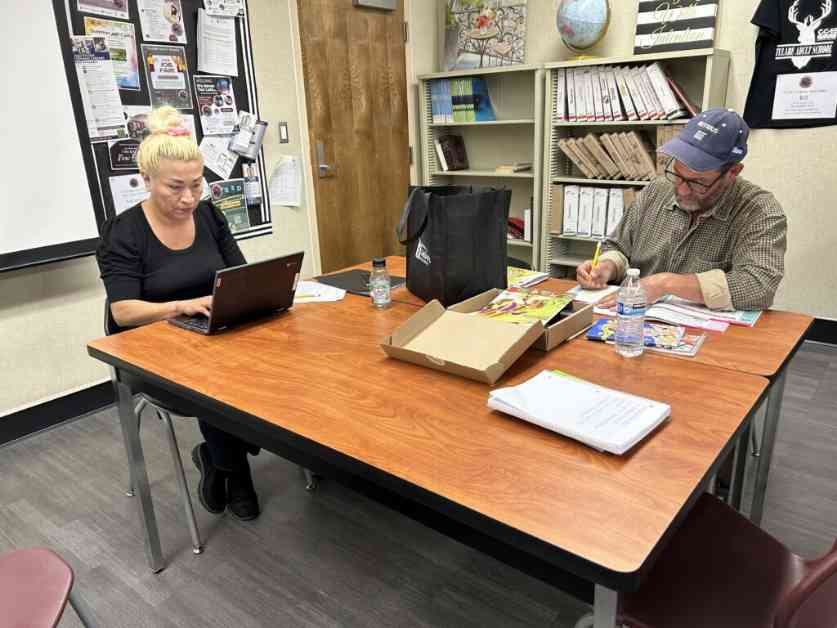Despite efforts across various sectors, adults throughout California continue to struggle to access education opportunities that can be critical for their family’s economic mobility. The panel at EdSource’s roundtable, “Adult education: Overlooked and underfunded,” delved into the key recommendations and discussions on expanding access to adult education, shedding light on the common barriers to access and ways to overcome them.
Barriers to Adult Education:
Panelist Francisco Solano’s journey from a high school graduate in Mexico to pursuing a doctorate in molecular biology at UCLA highlights the transformative power of adult education. However, Solano emphasized the challenges he faced, describing the road through adult education as “exhausting” and “not convenient at all.” Many of his peers struggle to break free from the cycle of limited opportunities due to the demands of securing basic needs for their families while trying to pursue further education.
Solano also raised a critical point about larger companies potentially hindering the success of migrants like him, as they rely on a cheap labor force. This highlights systemic barriers that impact access to adult education, particularly for marginalized communities. Rural areas face additional challenges related to time and distance, making it harder for individuals to access educational opportunities.
Steve Curiel, the principal of Huntington Beach Adult School, highlighted the lack of policy-level discussions on adult education, noting that elected officials often overlook the critical role it plays in transforming lives. This underlines the need for greater awareness and advocacy at all levels to prioritize adult education as a key component of economic mobility and community development.
Raising Awareness and Marketing:
Carolyn Zachry, the state director and education administrator for adult education at the California Department of Education, emphasized the importance of storytelling and raising awareness among potential students. Sharing success stories like Solano’s can inspire others to take the step towards furthering their education. Zachry stressed the role of the school community in providing support and encouragement to adult learners.
John Werner, the executive director of Sequoias Adult Education Consortium, highlighted the significance of actively engaging with the community to promote adult education. Strategies such as outreach at local events, including farmers markets and flea markets, can help reach individuals who may not be aware of the opportunities available to them. Leveraging media platforms like TV and radio can also enhance visibility and engagement with prospective adult learners.
Overcoming Barriers and Expanding Access:
To address the challenges of access, several organizations are implementing measures to expand opportunities for adult education. Introducing remote and virtual learning options can provide flexibility for adults who may face constraints in attending traditional classes. However, Kathy Locke, an ESL teacher in Oakland Unified, emphasized the importance of in-person instruction, particularly for individuals with limited English proficiency who may struggle with online learning.
Steve Curiel shared how Huntington Beach Adult School has provided laptops and internet connectivity channels to support online learning for adult students. This proactive approach demonstrates a commitment to overcoming technological barriers and ensuring equitable access to education. Additionally, offering childcare services can alleviate the burden on adult learners with children, enabling them to focus on their studies without worrying about childcare responsibilities.
Broader Benefits of Adult Education:
The roundtable panelists emphasized the ripple effects of adult education on supporting children’s education and breaking the cycle of poverty. By investing in adult learners, we can create a positive impact on future generations. For instance, parents attending English language classes can improve their child’s literacy skills and increase parental involvement in their education.
John Werner highlighted the crucial link between adult education and economic opportunities, noting that empowering adults with education enables them to secure employment and support their families. By addressing the needs of adults in poverty, we can uplift entire communities and pave the way for sustainable growth and development.
In conclusion, expanding access to adult education is not just a matter of individual empowerment but a collective investment in the future of our communities. By dismantling barriers, raising awareness, and providing tailored support, we can unlock the potential of adult learners and create a more inclusive and prosperous society for all.
